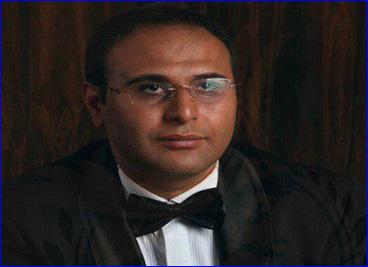


Ashur Kalta, 37, was killed on Sunday during protests in Fardis, near Karaj, according to the NGO Human Rights in Iran.
Estimates of the total number killed vary, but Amnesty International said yesterday that "at least 106″ protesters have been killed in 21 cities, according to "credible reports". Other reports suggest the figure may be as many as 200, while many more have been injured.
Precise figures are hard to come by, since the Iranian government shut down the Internet for days in order to make it harder for protesters to communicate with one another and to share the reality on the ground with interested observers outside Iran. Monitoring site NetBlocks reported over 100 hours of Internet shutdown, before around 10% of connectivity was restored today.
The Iranian authorities have claimed the arrests of over 1,000 protesters, referring to them as "thugs", "traitors" and agents of the USA.
The Assyrian representative to the Iranian parliament, Yonathan Betkolia, has yet to respond to the death of the Assyrian Christian, though he earlier encouraged Christians not to participate in the protests, which he blamed on "enemies of the regime".
The controversial figure is one of five representatives in the Iranian parliament for recognised religious minorities -- there are also two Armenian Christians, a Jew and a Zoroastrian. However, all five are extremely restricted in what they can say, and must always be seen to toe the party line.
The Jewish representative, Siamak Moreh Sedgh, was among a delegation from the Iranian government at the UN Human Rights Council in Geneva earlier this month, where Iran's human rights record was reviewed as part of the four-yearly Universal Periodic Review (UPR) of all UN member states.
Mr. Moreh Sedgh, in a short statement as part of the Iranian government's presentation on its own rights record, said Iranians had "total religious freedom" and that he was "sure that all of the problems of religious minorities can be solved within the framework of the Islamic Republic of Iran and its constitutional law".
However, several other member states voices "serious concerns" about the "ongoing severe limitations" to freedom of thought, conscience, religion or belief for minorities in Iran, and a resolution was passed calling on Iran to "end widespread and serious restrictions, in law and in practice, on the right to freedom of expression and opinion ... and the right to freedom of association and peaceful assembly, and to end its harassment, intimidation and persecution of ... persons belonging to recognized and unrecognized religious minorities and their families, wherever it may occur".
The resolution also instructed Iran to stop:
- "monitoring individuals on account of their religious identity";
- "incitement to hatred" against members of religious minorities;
- denial of education to children of minorities;
- "unduly harsh sentences ... including long-term internal exile".
It also called on Iran to:
- "release all religious practitioners imprisoned for their membership in or activities on behalf of a recognized or unrecognized minority religious group";
- "ensure that everyone has the right to freedom of thought, conscience and religion, including the freedom to have or to adopt a religion or belief of their choice, in accordance with its obligations under the International Covenant on Civil and Political Rights";
- provide "legal representation of one's choice" to all defendants.
Just last week, Christian convert Ebrahim Firouzi was sent into internal exile following six years in prison, while Article18 has also highlighted the proliferation of hate speech against Christians in Iran; the denial of education to the children of imprisoned Christian convert Yousef Nadarkhani; Iran's harassment of family members of Christian converts; and how earlier this year five Christian converts had their bail amounts increased tenfold when they insisted on their own choice of lawyer.
The resolution also called on Iran to provide access to the country to the UN's Special Rapporteur on Human Rights in Iran, Javaid Rehman, who has been highly critical of Iran's mistreatment of its religious minorities, including Christian converts, who are not recognised by the government.
In response, the leader of the Iranian delegation, Mohammad-Javad Larijani, said that "while we don't have any hostility with [Mr. Rehman] ... we think that his appointment is both unjustified and unwarranted" as "Iran is the most important and greatest democracy in the west of Asia" and shouldn't have been "singled out for special reporting" when there are "nearby countries" where "even the women cannot drive the car " -- a thinly veiled attack on Saudi Arabia.
He also accused Mr. Rehman of "indulging in media manipulation ... moving from one side of television to another, and engaging in propaganda against Iran".
Mr. Larijani said Mr. Rehman had created a list of "more than 1,000 accusations" against Iran by using "scissor and paste from the media", and that it was "not feasible" for the rapporteur to "see whether this list of 1,000 accusations is correct or not" during a three-day visit.
He further blamed Mr. Rehman's reports on "the views that he gets from the MKO", which he said were "put in the mouth of the special rapporteur" in [the MKO's] "safe havens" in Berlin, London and the USA.
Mr. Larijani did not respond specifically to the problems faced by Christians in Iran, though he did remark on the situation of the Baha'is, saying that although they were not a recognised religious minority, they are "supported and shielded by the government" and that the "issue made of them outside [Iran]" is very different from the "reality on the field".

or register to post a comment.